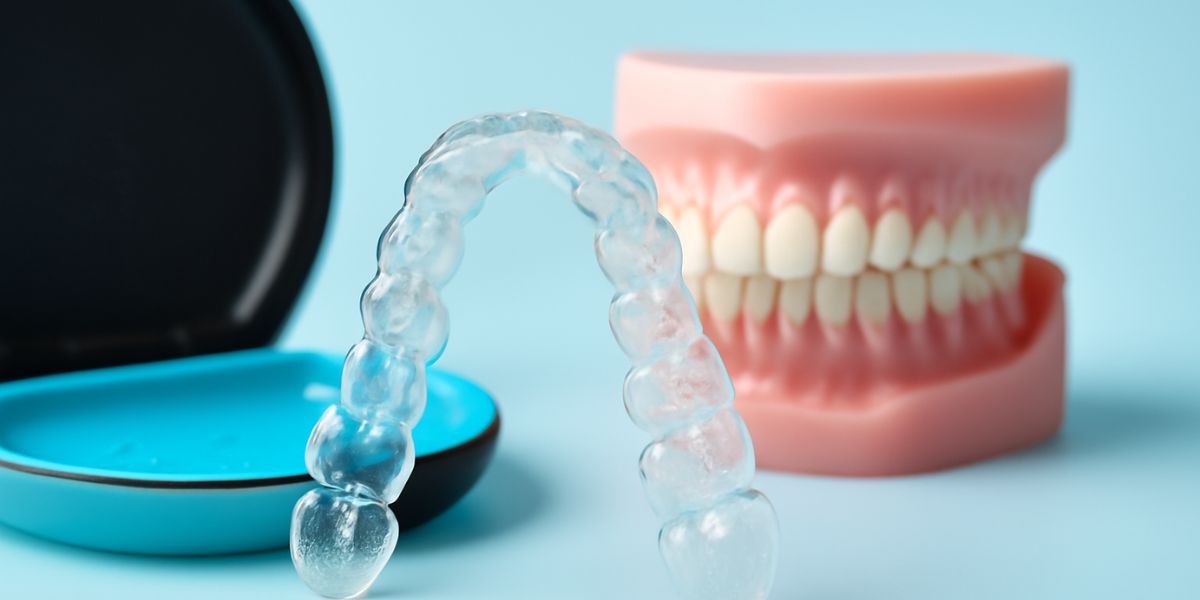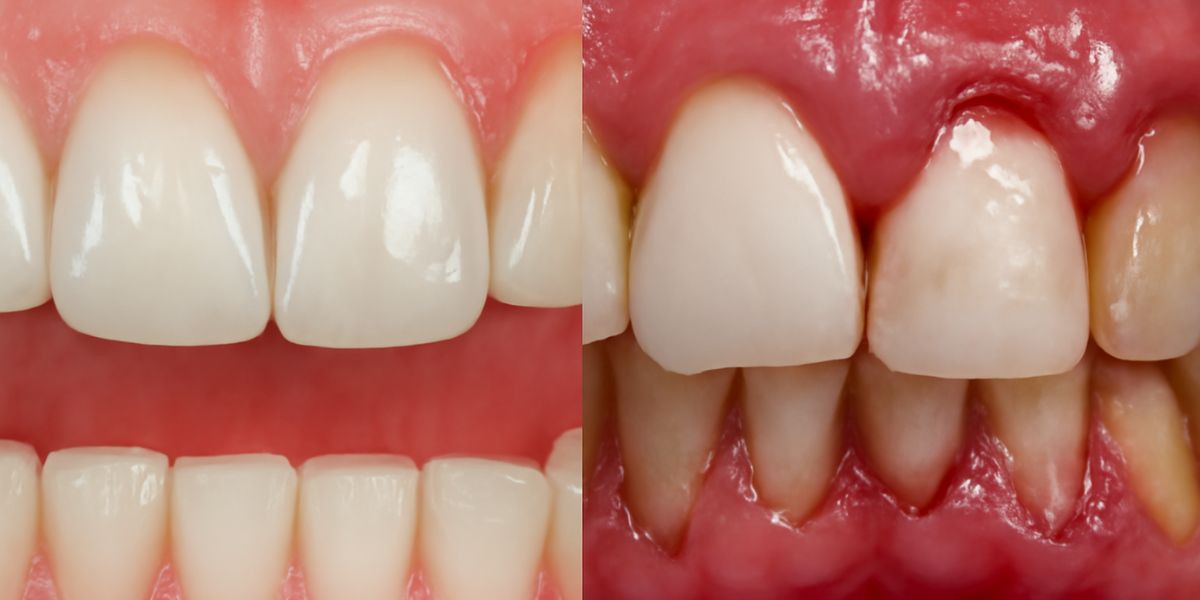¿Alguna vez te han sangrado las encías al cepillarte los dientes?
Muchas personas creen que el sangrado bucal es algo normal, producto de la fricción que ejerce el cepillo contra los tejidos, pero no es así.
Tenlo claro, una encía sana no sangra cuando la cepillas.
Si esto ocurre, debemos acudir al dentista para hacernos una revisión y averiguar el motivo, ya que puedes necesitar una periodoncia. Te adelantamos que la causa más frecuente suele ser la presencia de enfermedades periodontales.
¡Te explicamos por qué sangran las encías y cómo puedes evitarlo!
¿Por qué me sangran las encías cuando me cepillo?
Si te preguntas si es normal que las encías sangren al cepillarse, en muchos casos es un signo de riesgo de enfermedad peridontal (gingivitis o peridontitis).
¿La solución rápida para dejar de preocuparte y resolver tus dudas? Ve al dentista para controlar cualquier posible complicación.
Las enfermedades periodontales son un conjunto de patologías infecciosas que se generan cuando se acumulan las bacterias en el margen de la encía que rodea a los dientes.
La acumulación de placa bacteriana provoca la inflamación de las encías.
Por ello, si tienes una enfermedad periodontal, tus encías sangran cuando te cepillas.
Este sangrado también se conoce como sangrado gingival, y en muchos casos puede presentarse sin un motivo aparente.
Es importante diferenciar entre el sangrado en las encías y el sangrado en los dientes. Mientras que el primero suele ser causado por gingivitis o periodontitis, el segundo puede estar relacionado con traumatismos, caries profundas o infecciones.
¿Por qué me sangran los dientes al cepillarse?
El sangrado en los dientes es menos frecuente que el sangrado en las encías y puede deberse a problemas como caries profundas, fracturas dentales o infecciones internas.
Si alguna vez te has preguntado por qué te sangran los dientes o qué significa que te salga sangre de los dientes, es importante acudir a un odontólogo para evitar complicaciones.
Entre las causas más comunes se encuentran:
- Traumatismos dentales: golpes en los dientes pueden generar sangrado inmediato o interno.
- Caries avanzadas: cuando la caries afecta la pulpa dental, puede producir sangrado.
- Bruxismo: rechinar los dientes de manera frecuente puede provocar lesiones en el esmalte y sangrado.
- Enfermedades periodontales avanzadas: la periodontitis puede extenderse al hueso y afectar la estructura dental, causando sangrado.
Si notas sangre en los dientes al cepillarte o te preocupa el sangramiento de los dientes sin motivo aparente, agenda una cita con tu dentista lo antes posible.
¿Pasa algo si me sangran las encías?
En su estado más leve, la enfermedad periodontal no tiene por qué suponer un problema. Únicamente tendrás las encías más sensibles y predispuestas a sangrar cuando las roces.
El problema viene cuando, por pereza o por considerar esta patología una “molestia menor”, dejamos que la infección avance y no acudimos al dentista para tratarla.
Si la periodontitis evoluciona, puede afectar gravemente a tus dientes y encías, provocando síntomas como inflamación, lo que puede llevar al sangrado excesivo de encías o incluso sangramiento de encías espontáneo.
El peligro de no acudir al dentista cuando te sangran las encías
Llamamos enfermedades periodontales a la gingivitis y a la periodontitis.
- El sangrado y el enrojecimiento de las encías son los síntomas principales de la gingivitis.
- Mientras que, si padeces una periodontitis, la infección puede provocar la retracción de las encías, la pérdida de soporte óseo y, como consecuencia, la inestabilidad de las piezas dentales.
En última instancia, la periodontitis puede llegar a provocar la pérdida de dientes, así que no dejes que conquiste tu boca.
Si te sangran las encías al cepillarte los dientes, ¡acude a tu clínica dental!
Que te salga sangre de los dientes puede suponer que el problema no solo afecte las encías, sino también las estructuras internas del diente.
Además, algunas personas experimentan sangrado en la lengua al cepillarse, lo que puede deberse a irritación, deficiencias vitamínicas o infecciones orales.
¿Por qué me sangra la lengua cuando al cepillarme?
El sangrado en la lengua es un problema menos común, pero puede estar relacionado con:
- Cepillado agresivo: usar un cepillo de cerdas muy duras o aplicar demasiada presión al cepillarte.
- Deficiencias vitamínicas: la falta de vitamina C o K puede hacer que las mucosas sean más propensas a sangrar.
- Infecciones o llagas: aftas, hongos o heridas pueden hacer que la lengua sangre al cepillarla.
- Irritación por alimentos o sustancias: comidas ácidas o picantes pueden causar sensibilidad y sangrado.
Si te preguntas por qué te sale sangre de la lengua cuando te cepillas los dientes, es recomendable cambiar a un cepillo de cerdas suaves y consultar a un especialista si el problema persiste.
Cómo puedo evitar que me sangren las encías
Según la Organización Mundial de la Salud, la periodontitis afecta a casi el 40% de la población mundial.
La forma más efectiva de combatir esta patología es con una buena prevención, lo que implica mantener una higiene dental óptima y acudir al menos una vez al año a hacerte una revisión en el dentista.
En nuestra clínica dental en Granada, podemos realizar una profilaxis (una higiene dental profesional) para eliminar el exceso de placa acumulada entre los dientes y encías.
De esta forma, saldrás del dentista con unas encías más sanas, y en casa solo tendrás que asegurarte de mantener una rutina de cuidados correcta.
Por otro lado, se ha demostrado que el tabaco agrava la pérdida ósea que se produce por la periodontitis. ¡Una razón más para dejar atrás este peligroso hábito!






